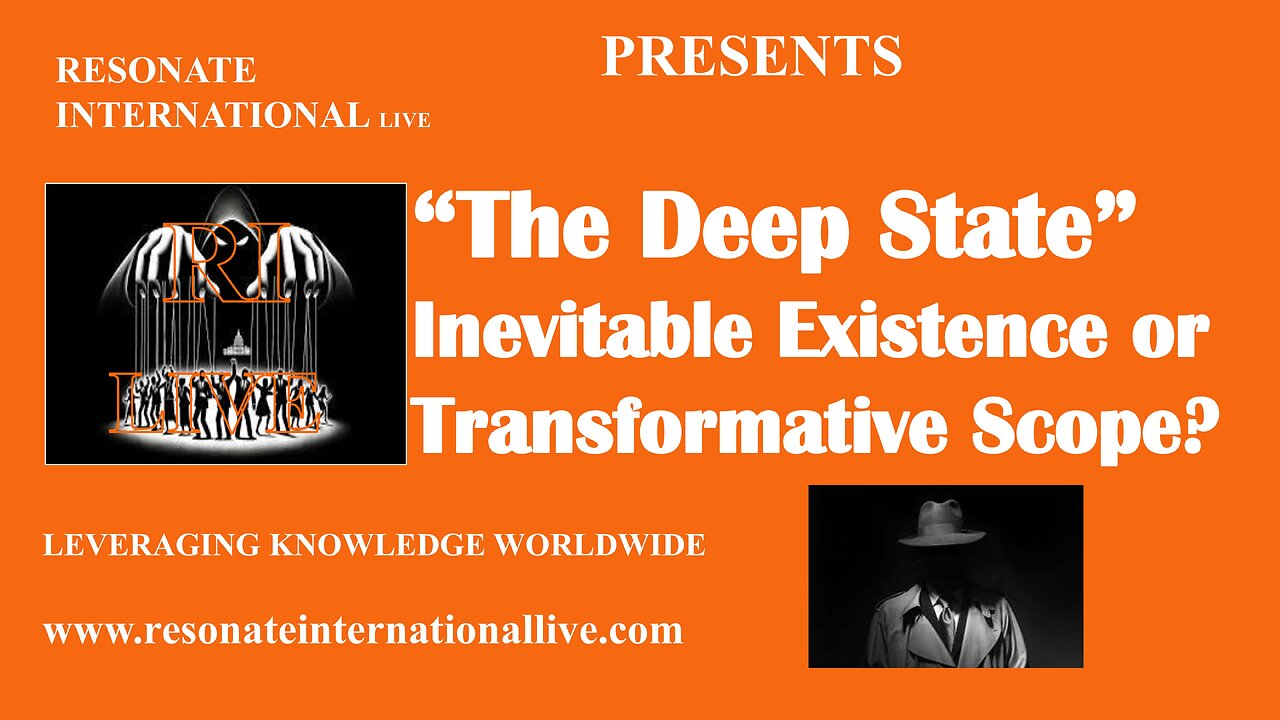Premium Only Content

The Deep State: Inevitable Existence or Transformative Scope?
The term "Deep State" evokes mystery, influence, and often controversy. While definitions vary, it broadly refers to entrenched, powerful groups within a nation's bureaucracy and intelligence networks that operate independently of elected leaders. This hidden power structure is often viewed as a self-sustaining entity that influences national policies, sometimes aligning with or diverging from public interest. The origins of the Deep State concept trace back to the early 20th century, emerging prominently in Turkey and later grew into a global phenomenon. World-wide, it now resonates across modern democracies and is commonly associated with countries possessing robust military, intelligence, and bureaucratic systems—nations where powerful entities sometimes seem to shape political outcomes beyond visible governance. In the U.S., this idea grew in the 1960s amid concerns over intelligence agencies, seen as influencing public perception and foreign policy. Today, the “Deep State” is considered to cast shadows within the corridors of power, posing a question of profound importance: Is the Deep State an inevitable facet of governance, or does it hold a potential for transformative reform?
-
![[Ep 794] Epstein Act | MTG 2.0 [Liz Cheney?] | Crooks, Furries, & Social Media | Guest – Sam Anthony](https://1a-1791.com/video/fww1/1b/s8/1/u/D/2/A/uD2Az.0kob-small-Ep-794-Epstein-Act-MTG-2.0-.jpg) LIVE
LIVE
The Nunn Report - w/ Dan Nunn
1 hour ago[Ep 794] Epstein Act | MTG 2.0 [Liz Cheney?] | Crooks, Furries, & Social Media | Guest – Sam Anthony
168 watching -
 1:06:52
1:06:52
DeVory Darkins
3 hours agoBREAKING: Congress issue MAJOR EPSTEIN Update as MTG goes OFF THE RAILS
111K106 -
 2:06:23
2:06:23
Side Scrollers Podcast
5 hours agoStreamer Awards WRECKED + Cloudfare OUTAGE + AI LOVED ONES?! + More | Side Scrollers
31.9K3 -
 1:57:30
1:57:30
Steven Crowder
7 hours agoSteven Crowder is a Deep State Agent
552K448 -
 1:04:17
1:04:17
Sean Unpaved
4 hours agoJames Franklin Is Going To REVIVE Virginia Tech! | UNPAVED
28.4K2 -
 LIVE
LIVE
Viss
7 hours ago🔴LIVE - Completing Quests & Annihilating All in Our Path! - Arc Raiders!
88 watching -
 53:51
53:51
The Rubin Report
5 hours agoBill Maher Obliterates Patton Oswalt’s Liberal Bubble in Only 2 Minutes
62.3K71 -
 LIVE
LIVE
LumpyPotatoX2
5 hours agoWhere Winds Meet: Just Petting Kitties - Made in China
35 watching -
 LIVE
LIVE
ReAnimateHer
21 hours ago $1.09 earnedDBD Shenanigans
48 watching -
 1:08:01
1:08:01
iCkEdMeL
4 hours ago $2.22 earned🚨Mom Gives Birth on Highway After Kicked Out of Hospital?!
28.9K12